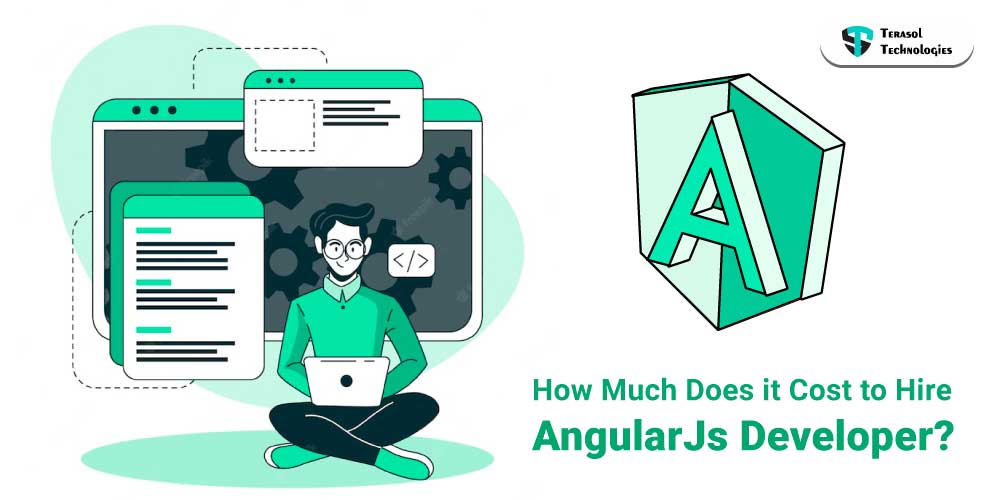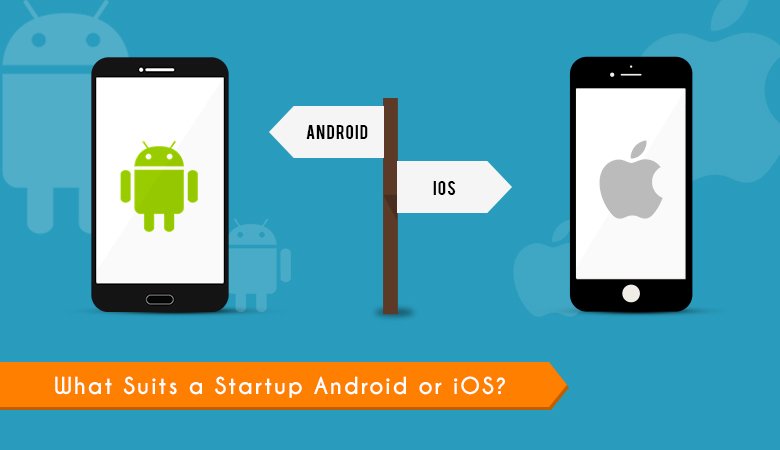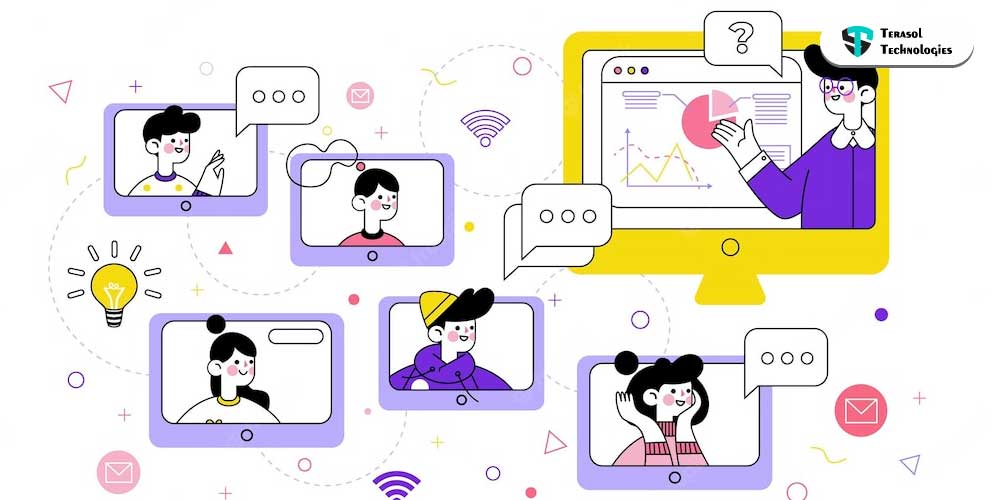Convert iOS to Android Apps: Tips, Challenges and Development Cost
Currently, mobile applications are all in demand. They are small enough to fit in your pocket and bring with you wherever you go for your entertainment, managing daily routines, etc. To stay current as a business and reach your target audience, all you need is mobile app development.
You'll also need to choose a platform to build your app. iOS and Android are the two most common options. Both have their strengths and millions of users. Earlier, organizations would go for single platform app development as developers had limited options.
One of the most compelling reasons to convert iOS to Android apps is the potential for increased revenue and google on the Store. Having an iOS mobile app for your business or brand to market it among your clients is a fantastic idea, as the platform has shown to be a terrific place to start.
On the other hand, android app development is best when you want to reach a broad audience, as Android is the most popular smartphone platform today.
Once your iOS version of the app is a success, it's a good idea to have an Android version on hand so you can reach out to millions of Android users and provide them with a great user experience.
Now, if you're wondering why you should convert iOS to Android apps, here are some compelling arguments to persuade you to do so and employ a development team to do so.
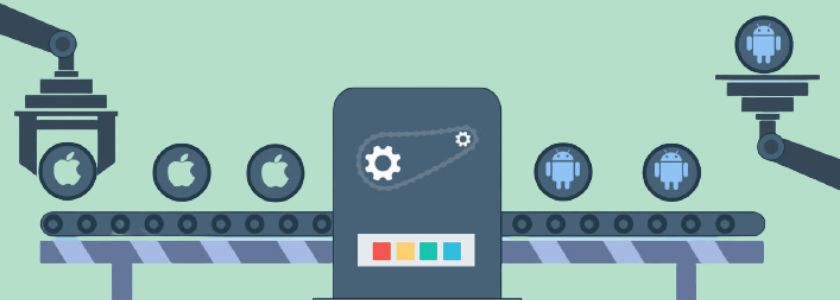
Why Convert iOS to Android App?
Expand Your Market Reach: Google Play generates considerably more downloads than the App Store. Android OS accounts for 70% of the mobile OS market, so if you only have an iOS app, you're missing out on a significant portion of your prospective clients.
Higher Return on Investment (ROI): The ability to port an app from one platform to another allows it to reach a larger worldwide audience.
Add-on Features: To gratify your target audience, switch the iOS to Android app and use features like back navigation buttons, widgets, push notifications, android intents, android wear, and more.
Competitive Advantage: Many of your competitors may prefer one platform over the other, leaving the other free. Developing an app for both iOS and Android gives you a leg up on the competition.
How to Convert iOS App to Android?
Is there a ready-to-use iOS to Android app converter or tool available?
No, there are no ready-made tools or converters available to help you convert iOS to Android app.
To effectively convert iOS to Android apps, careful planning is required. It's critical to think about how to break the process before porting an iOS software to Android. Here are three steps you can take:
1. Plan and analyze
During this step, you'll examine how your present iOS app works, including its features, workflow, and design aspects. Aside from that, you'll need to concentrate on potential problems, issues, and challenges, as well as strategies to fix them, to optimize the app's Android version.
You can either consider a solution or improve the Android app version. Individualities in the backend, the app porting process, tools, and frameworks must all be thoroughly tested for compatibility.
2. Valuation and Execution
All technicalities with the code, libraries, and third-party services must be evaluated. You must choose the correct technical stack to ensure that app porting is an accurate, efficient, and quick process. Converting an iOS to Android app in some circumstances may be similar to developing an Android app. The majority of work is spent on design and feature adaptation, which includes building Android-specific UI/UX and functionality, setting up monetization, and backend tools.
3. Testing the App and Going Live
Quality assurance is critical while converting iOS to Android apps, as it is in any app development process. Depending on the process of the application development business you chose for your conversion requirement, you can test using genuine Android devices or emulation tools. Aside from that, there are several types of mobile app testing available, such as load testing, validation, user acceptance testing, and beta testing.
The next and final step is to publish your Android app to the Google Play store and start your app marketing campaign when it has been tested for performance and other issues have been rectified.
Stages of Porting iOS to Android App
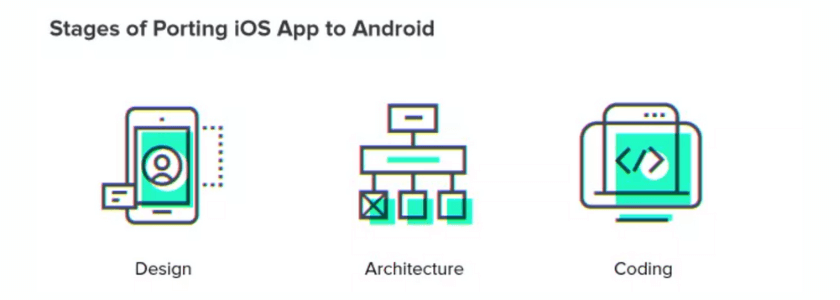
Now, let's take a look at some of the different aspects and considerations that come with app porting. These are some of them:
UI/UX/Design: iOS and Android have different environments. They behave differently and live in distinct contexts. The UI/ UX true innovation in this interface is the element flexibility (icons, texts, lights, shapes, images). Apple's iOS, on the other hand, is designed flatly.
Buttons, icons & font size, lists, tabs, date/time selectors, navigation, widgets, and many more design differences to consider when converting an iOS to Android app. As a result, when converting the program from iOS to Android app, you should avoid trying to reproduce the design components.
Architecture: When developing an Android app, it's best to go with the app's compatibility with the most recent version that will be supported. You'll need to check Android app design and decide how many Android versions your app will support. The percentage of mobile devices you wish to cover will determine this selection. When reviewing app architecture, keep in mind the differences between the two platforms – iOS and Android. Depending on the OS's infrastructure, you may need to add or delete specific features and functionalities.
Coding: If the code cannot be reused, the development team will have to redo the entire app code from scratch. As a result, it's critical to prioritize the product's "time-sensitive" elements. Android apps are often written in Java or Kotlin, whereas iPhone apps require Swift. Furthermore, cross-platform programs can be created if the code is written from scratch.
Challenges Of Porting iOS To Android App
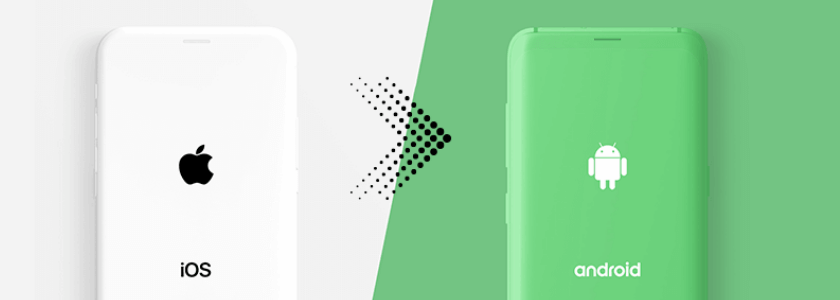
With a list of the most typical challenges, let's go over some of the most crucial challenges when converting an iOS to Android app.
Different Screen Resolution and Size
The largest and most typical problem that developers encounter when porting an app to Android is creating an Android app based on an iOS UI design for different screen sizes. The screen sizes and resolutions of each device are different.
Code Porting
For programming, Apple's mobile devices primarily employ Swift/Objective-C, whereas Android app developers commonly use Java and Kotlin. There is syntax for every programming language. Converting a program from one language to another is typically a difficult task. As a result, the time and effort necessary to design the same feature for other platforms are different.
Differences in Architecture
Almost every year, the Android and iOS versions are upgraded. Features that are supported in one version may not be available in a previous version. As a result, your software should run smoothly on the most popular versions of the operating system.
Libraries and Frameworks
Setting app rules, adding visuals, customized themes, connection protocols, and more can all be made easier with third-party libraries. When converting an iOS software to an Android app, however, you must first discover the frameworks and libraries that support both operating systems and make functional replication simple.
Navigation
The design and feel of Android navigation bars differ from that of iOS. As a result, when porting an iOS app to Android, make sure users can get to the app's content as quickly as possible because they don't want to spend time relearning your strange navigation.
Cost Of Converting An iOS To Android App
The cost of developing a mobile app is a major factor in evaluating whether or not it should be converted from iOS to Android app. It is dependent on the size, location, and features of the project. For the usual feature application, the cost of converting an iOS software to an Android app ranges from $6000 to $20000. It is also dependent on several other things.
Our development team can help you analyze project needs, examine target groups, map potential challenges, and work with you to port the app based on your chosen key features.
Conclusion
A great amount of strategic planning and design consideration goes into porting an iOS app to Android. To produce a solution that is nearly identical to the prior version, you'll need a systemized method. Converting an app from iOS to Android might be a beneficial commercial option if you take advantage of a greater target audience.
The combination of reworking your core architecture and translating your code will allow you to effortlessly transfer your software to make use of the specific features of your target platform while also providing many benefits to your end customers.
We are here if you're having trouble transferring your iOS app to Android or vice versa, or if you'd like to talk about your app idea.
Our experts at Terasol Technologies possess the necessary knowledge of platform adaptation, app business logic, development, and testing. With our collaborative approach, the redesigned app would be compatible with all common Android-based smartphones.
So, if you need more information on how to go about project development for your projects, please contact us and we would be pleased to answer any questions you may have!
